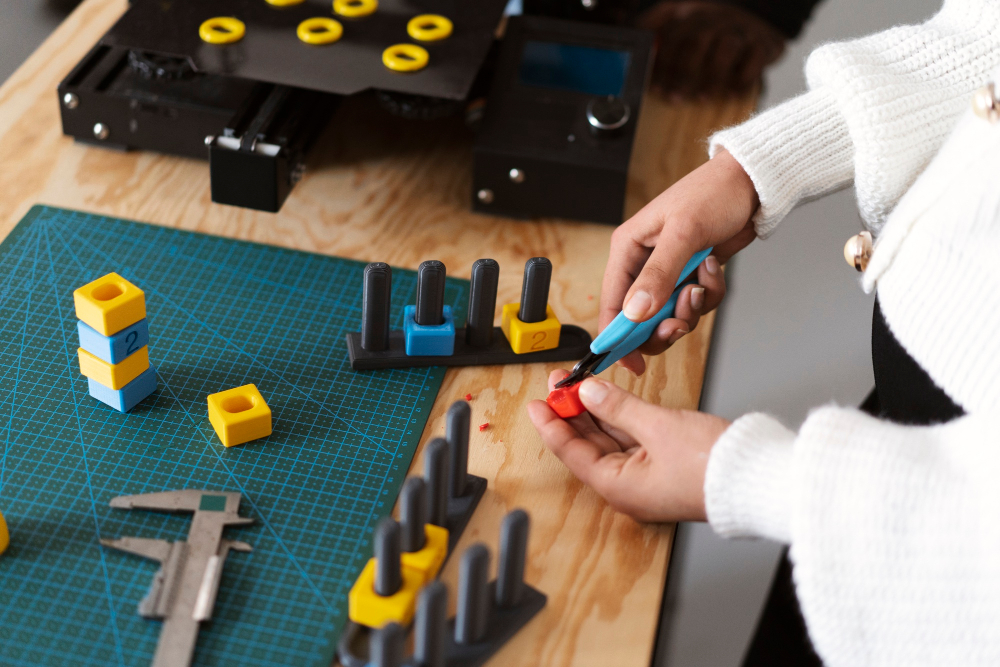Plastic Molding in Modern Engineering: A Complete Guide

Plastic Molding in Modern Engineering: A Complete Guide
In today’s world of engineering and manufacturing, plastic molding has become one of the most widely used processes. From automotive components to consumer products, plastic molding enables mass production of lightweight, durable, and cost-effective parts with precision and consistency.
At Tanwar Industries Pvt. Limited (TIPL), we specialize in delivering high-quality plastic molding solutions that cater to diverse industries. With over two decades of expertise, we combine advanced technology, skilled craftsmanship, and strict quality standards to create products that exceed customer expectations.
What is Plastic Molding?
Plastic molding is the process of shaping plastic material into desired forms using specialized machinery and molds. The process involves melting plastic polymers and injecting or compressing them into molds to create components of specific sizes, shapes, and functions.
This versatile technique is used to manufacture everything from small intricate parts to large automotive and industrial components.
Types of Plastic Molding Processes
Different molding processes are used depending on product requirements:
1. Injection Molding
Most common plastic molding technique.
Molten plastic is injected into a mold cavity under high pressure.
Ideal for high-volume production of complex shapes with excellent precision.
2. Blow Molding
Used to create hollow plastic parts such as bottles and containers.
Air pressure inflates heated plastic inside a mold.
3. Compression Molding
Involves pressing heated plastic into a mold.
Best suited for large and durable parts.
4. Extrusion Molding
Plastic is melted and forced through a die to create continuous shapes like pipes, rods, or sheets.
5. Rotational Molding
Involves heating and rotating plastic material inside a mold to form hollow products.
Commonly used for tanks, containers, and large hollow parts.
Applications of Plastic Molding in Modern Engineering
Plastic molding has revolutionized industries by offering cost-effective, versatile, and durable solutions. Its key applications include:
Automotive Industry: Dashboards, panels, handles, housings, and connectors.
Consumer Electronics: Casings, switches, and lightweight components.
Medical Equipment: Syringes, containers, and medical device housings.
Industrial Engineering: Gears, seals, and protective housings.
Household Products: Furniture parts, kitchenware, and packaging.
Advantages of Plastic Molding
Plastic molding offers several benefits compared to traditional manufacturing methods:
High Efficiency: Ideal for mass production with reduced cycle times.
Design Flexibility: Capable of producing complex shapes and detailed features.
Cost-Effective: Lower production costs compared to metal parts.
Lightweight & Durable: Plastics reduce weight without compromising strength.
Consistency: Uniform quality across large production volumes.
Why Choose TIPL for Plastic Molding?
At Tanwar Industries Pvt. Limited, we pride ourselves on delivering precision-engineered plastic molding solutions. Our strengths include:
Modern Manufacturing Facilities equipped with advanced injection molding machines.
Customization Capabilities to meet client-specific requirements.
In-House Testing Laboratory ensuring quality and performance.
Proven Track Record of serving leading OEMs and Tier 1 customers.
Two Decades of Excellence in rubber and plastic manufacturing.
Conclusion
Plastic molding is at the heart of modern engineering and innovation. It empowers industries to create products that are not only functional but also cost-effective and reliable.
At TIPL, we combine technology, quality, and experience to provide plastic molding solutions that meet the evolving demands of the automotive, industrial, and consumer sectors.
✨ Tanwar Industries Pvt. Limited – Shaping the future of engineering with precision plastic molding.
